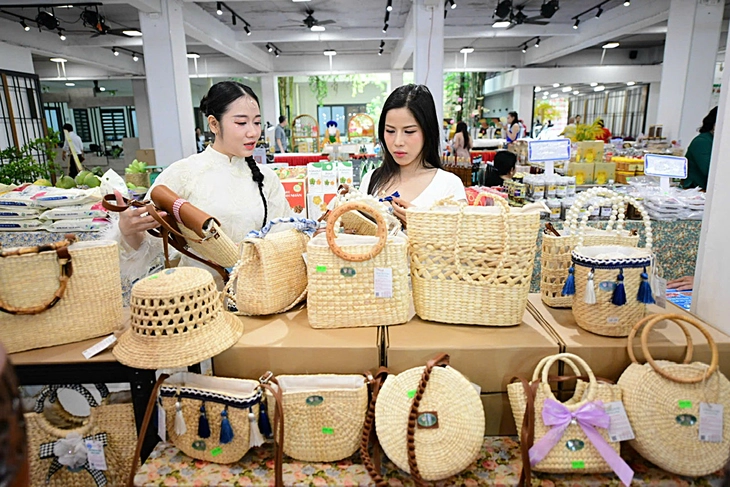
Consumers play an important role in promoting green production, motivating businesses to develop sustainably - Photo: QUANG DINH
This meets the increasingly demanding needs of consumers, opening up opportunities for businesses to lead the consumer market. According to experts, green production is a long journey but it is also an important path for Vietnam to develop sustainably, so there needs to be policies to support and encourage businesses to invest in green production in addition to their own efforts.
Consumers prefer green products
Starting out in the green manufacturing industry, AirX Carbon has seen remarkable growth in recent times as both consumers and businesses have increased their orders for environmentally friendly products.
Among them, products made from bioplastic, using corn flour, sugarcane or cassava starch that are easily decomposed and recycled are popular with consumers.
Food packaging, cups, disposable cutlery, and plastic components in industrial production... made from the above materials all have good sales.
Pallets made from agricultural waste such as straw, coconut fiber, bagasse... are of interest to manufacturing, logistics and export businesses due to their environmental friendliness and reasonable cost.
Speaking to Tuoi Tre, Ms. Phuong Thao Bui - director of sustainable development at AirX Carbon - said that the company's products not only help reduce environmental impact but also meet the market's increasing demand for green materials, helping businesses achieve ESG criteria, reduce carbon emissions and comply with strict environmental standards as well as consumer demands.
"The sustainable product market is growing strongly with support from government policies and consumer trends. However, businesses still face many challenges such as high production costs and need to invest in new technology to improve efficiency," said Ms. Thao.
Mr. Khuat Quang Hung - Director of External Affairs and Communications of Nestlé Vietnam - said that consumers are increasingly interested in products that are good for health but also environmentally friendly.
In addition to product quality, consumers are also interested in whether products are manufactured by modern, energy-saving production lines, have green packaging, and the company's commitment to environmental protection...
Therefore, without green transformation, businesses will lose competitiveness and access to markets, especially markets with strict environmental, social and governance requirements.
"When investing in green products, businesses will increase their competitiveness... Green transformation is the way for businesses to create competitive advantages," said Mr. Hung.
According to Mr. Mandal Arghya, Director of TH True MILK Joint Stock Company, green production in general and the transition to a circular economic model in particular help businesses not only protect the environment but also optimize production costs, creating products with higher value. "Businesses that convert to this model early will have a sustainable competitive advantage," said Mr. Mandal Arghya.
Early green transition will have competitive advantage
Mr. Le Anh - director of sustainable development of Duy Tan Recycling, a leading enterprise in the field of recycling, exporting products to many countries - said that pioneering in high-quality recycling technology has helped this enterprise affirm its position, becoming a partner of more than 25 large corporations such as Coca-Cola, Nestlé, Unilever, La Vie...
According to Mr. Anh, many multinational corporations aim to use at least 50% recycled plastic in packaging by 2030, so the demand for qualified supplies is increasing. Previously, more than 60% of this enterprise's output was exported, but with the strong shift, domestic demand is also increasing sharply.
"From a capacity of 40,000 tons/year when we were first established, we have increased our capacity to 60,000 tons and aim to reach 100,000 tons by 2026. The modern production line system helps the company process about 200 tons of scrap plastic bottles per day, equivalent to 15 million PET bottles, providing the market with high-quality recycled materials," said Mr. Le Anh.
According to Mr. Pham Phu Ngoc Trai, Chairman of the Packaging Recycling Alliance Vietnam (PRO Vietnam), consumers are increasingly prioritizing environmentally friendly products, while domestic and international standards are tightening requirements on emissions and sustainability. "Therefore, businesses that make the transition early will have a competitive advantage, access global markets and meet customer expectations," Mr. Trai said.
Mr. Nguyen Van Tuan - Director of the Enterprise Support Center of the Vietnam Textile and Apparel Association (VITAS) - said that thanks to green transformation and sustainable development in recent years, many textile and garment enterprises have maintained orders, and the textile and garment industry's export turnover has grown by 8-10% per year.
MSc. Dang Bui Khue - director of sustainable development at TUV NORD Vietnam - said that a recent survey by LendingTree on 1,048 Americans showed that up to 55% of consumers are willing to spend more money to buy environmentally friendly products.
Nearly 40% of consumers said they were willing to boycott companies that did not focus on green factors, of which 18% actually took action to boycott.
“Proactively shifting to greener operations will help Vietnamese exporters strengthen their competitive position and open up new opportunities.
Green products and services are increasingly popular in the international market, and businesses with green certification can reach high-end customer segments and benefit from better prices," said Mr. Khue.
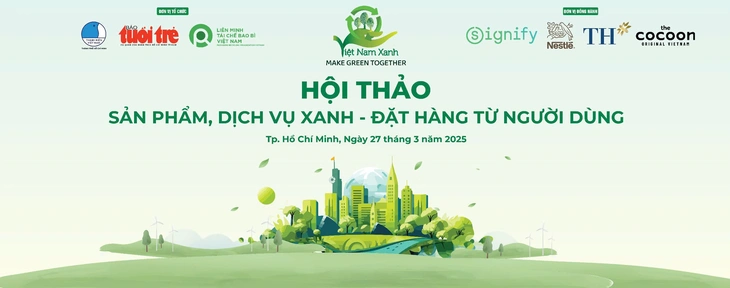
This afternoon, Tuoi Tre newspaper organized a workshop on "Green products and services - Orders from users". The program is part of the series of activities of the Green Vietnam project.
At the workshop, businesses, authorities, sustainable development experts and policy makers will discuss in depth the green consumption trend, providing practical solutions for businesses to adapt and develop sustainably in the context of changing consumption habits... Readers are invited to register to attend the workshop by scanning the QR code.
* Mr. Khuat Quang Hung (Director of External Affairs and Communications, Nestlé Vietnam):
Slow conversion will make it difficult to enter the international market
For businesses that want to bring products to international markets, meeting increasingly stringent environmental, social, and governance (ESG) regulations is a mandatory requirement.
Recently, we have been talking a lot about the Carbon Border Adjustment Mechanism (CBAM) applied to products of some high-emission industrial production sectors such as iron, steel, aluminum, fertilizer, electricity, or in June 2023, the EU issued the Deforestation Prevention Regulation (EUDR)...
If businesses do not proactively transform to meet these strict regulations, it will be difficult to participate in the international market.
* Mr. Pham Phu Ngoc Trai (Chairman of VN-PRO Vietnam Packaging Recycling Alliance):
Proactive green production
Over the years, many member companies of PRO Vietnam have proactively switched to green production with specific initiatives such as innovation in packaging design for easy recycling, using environmentally friendly materials or increasing the proportion of recycled materials in products.
Many members of PRO Vietnam also pioneered the use of recycled plastic bottles (rPET) in their products, contributing to reducing the use of virgin plastic...
In addition, businesses also optimize production processes to reduce emissions, save water and energy, contribute to building a sustainable production model, and develop 100% recyclable packaging...
These efforts show that businesses are not only adapting to increasingly stringent environmental requirements but also proactively creating changes early, contributing to promoting the recycling industry and building a circular economy in Vietnam.
* Mr. Pham Hong Hai (OCB General Director):
Need to perfect the legal framework for ESG
Completing the legal framework related to ESG (environment, social and governance) is extremely important because businesses know which standards to comply with, avoiding spending a lot of resources to build standards but not meeting or complying with national standards.
Although businesses have to spend additional investment costs, in the medium and long term, pursuing an ESG strategy will help reduce costs because all business activities will aim for sustainable development, minimizing negative impacts on the environment, leading to initiatives to save energy and resources...
Applying ESG will help businesses enhance their reputation and participate in the global supply chain, expand their partners, create new business opportunities...
Source: https://tuoitre.vn/san-xuat-xanh-co-hoi-dan-dat-thi-truong-2025032700155833.htm


![[Photo] Capital's youth enthusiastically practice firefighting and water rescue skills](https://vstatic.vietnam.vn/vietnam/resource/IMAGE/2025/4/3/3f8481675271488abc7b9422a9357ada)
![[Photo] Ho Chi Minh City speeds up sidewalk repair work before April 30 holiday](https://vstatic.vietnam.vn/vietnam/resource/IMAGE/2025/4/3/17f78833a36f4ba5a9bae215703da710)








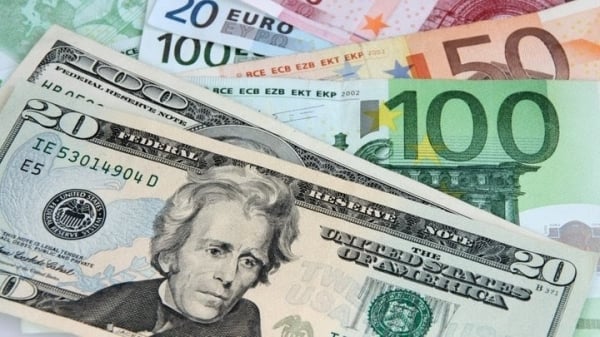


















































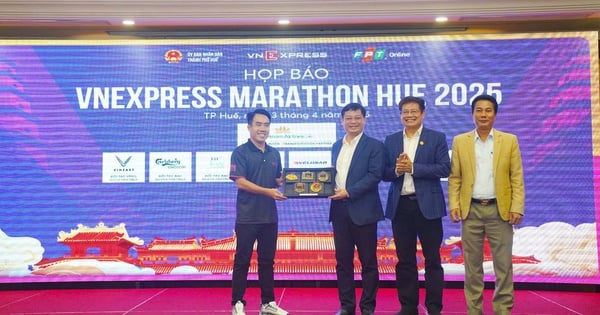




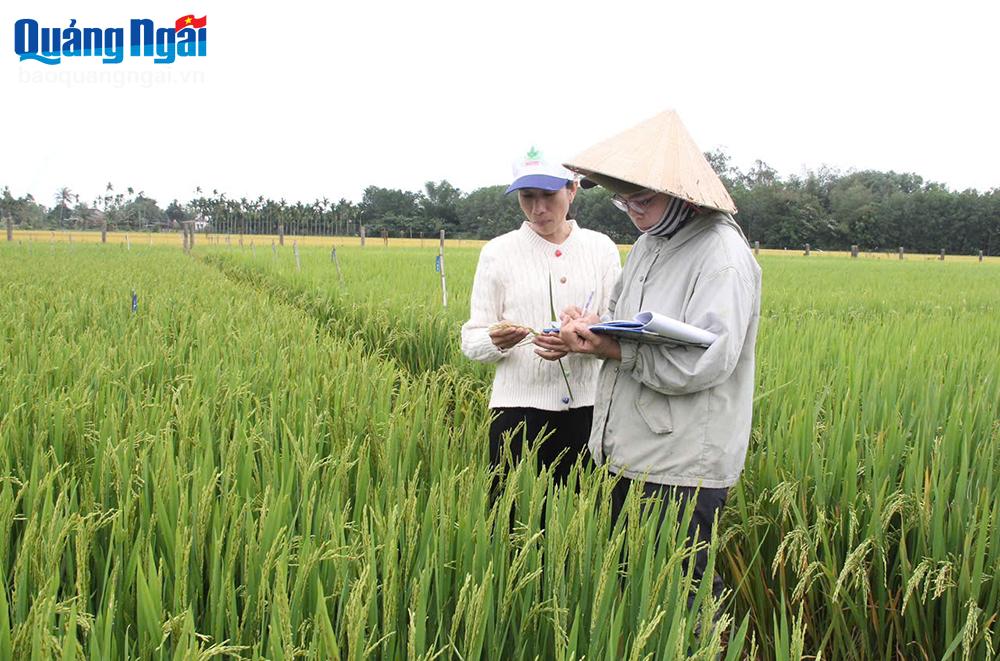
















Comment (0)